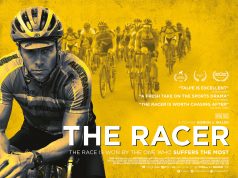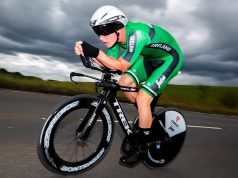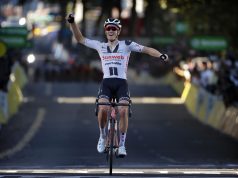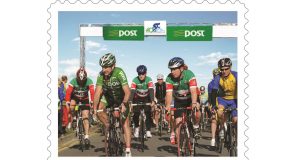This week marks the fourth UN Global Road Safety Week, which runs from the 8th – 14th May 2017. This year the campaign is placing a key focus on speed and what can be done in this key risk factor in road traffic death and injuries, as excess speed contributes to approximately one third of accident fatalities. In addition to this Cycling Ireland would like to highlight several key issues that should be addressed to reduce the number of cycling collisions on the road.
In Dublin, the Love 30 campaign will be highlighting the need for motorists to slow down by hosting a series of events on the 9th May, asking drivers to make the pledge to “Save Lives #SlowDown”.
Further to this Cycling Ireland would like to highlight the importance of having a Minimum Passing Distance Law (MPDL) passed, with this distance recommended to be 1.5m at least. The aim of this Law is to create an environment where all road users have a virtual safety zone with the obligation for safety being placed on the motorist, making that critical interaction on the road a safe one.
Should the MPDL be passed, road safety would improve as motorists would be provided with a clear, unambiguous and easily recognised measure when overtaking cyclists, and ultimately assist in reducing cyclist fatalities and serious injuries.
Over the past number of years Phil Skelton has headed an online social media campaign Stayin’ Alive at 1.5 to highlight the need for a MPDL; with the assistance of TD Ciaran Cannon and Chief Whip Regina Doherty the MPDL bill has been published, and will need the support of politicians to get it passed.
While we encourage all cyclists to look after their personal safety by taking measures such as wearing helmets and high visibility clothing, we want to see the roads becoming safer by measures that protect vulnerable road users by changing the behaviours of motorists rather than self-protection when an accident occurs. It is important that the behaviours of road users change from impatience, intolerance and distraction to a more tuned in and alert user.
Cycling Ireland supports the #Allocate4Cycling campaign which calls for an increased investment in a better infrastructure. Currently 1% of the transport budget is spent on cycling, this number needs to be 10% to reduce the number of cycling accidents, and to increase the number of people cycling on a regular basis.
There are many ways in which an increased spend on better infrastructure would have a positive impact for everyone. A Dutch study by Tom Godefrooij recommends that in areas where the “reduction of speed of fast driving cars is not possible or desirable” that segregated bike lanes should be provided for cyclists. The same study furthermore highlights that the “reduction of speed is necessary where different modes have to share the same infrastructure” referring to areas where segregation is undesirable or impossible, giving weight to the Love 30 campaign which strongly supports the introduction of a 30kmph speed limit on many roads in Irish towns and cities.
An increase in the number of people cycling regularly, and a decrease in the number of cars on the road will lead to safer roads. Using the example of a school, should more children cycle to school, fewer cars will need to congregate at the school gates making it a safer environment for everyone, as well as providing children with all the associated health benefits.
If you want to improve your cycling skills there are plenty of opportunities with programmes like Cycle Right and Bike for Life teaching and guiding cyclists in the best practice for cycling on the road.
Cycling Ireland is the National Governing Body for Cycling in Ireland. In 2016 Cycling Ireland and Cyclist.ie (The Irish Cycling Advocacy Network) became aligned with the shared vision of cycling becoming a normal part of transport and everyday life in Ireland.
Cycle Right is the National Standard for Cycle Training in Ireland and provides practical cycle safety skills training to promote competent and confident cyclists. Cycle Right is produced and supported by the Department of Transport, Tourism and Sport, the Road Safety Authority and Cycling Ireland, with input from central and local agencies and other groups. Cycle Right was officially launched by Minister Shane Ross in January 2017.
The Love 30 Campaign is headed by Mairéad Forsythe of the Dublin Cycling Campaign, and strongly supports the introduction of a 30kmph speed limit on many roads in Irish towns and cities.
The Stayin’ Alive at 1.5 Campaign is headed by Phil Skelton with an aim of introducing a 1.5m minimum passing distance law in Ireland.









